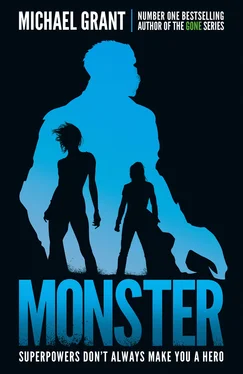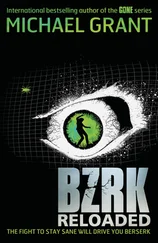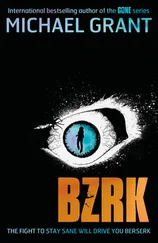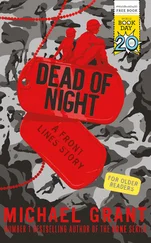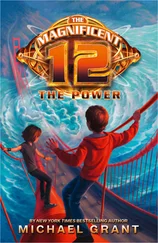Cruz swallowed a lump. “You’re talking about the alien rock?”
“The rock that changed the world,” Shade confirmed. “The rock that rewrote the laws of physics. The rock that turned random teen sociopaths into superpowered killers. That rock.”
“And you’re . . . you’re saying there’s more coming?”
“According to my father’s calculations, and he is very good at his job. He’s tracking the rocks. One lands today off the coast of Scotland. That’s ASO-Two. Another, ASO-Three, hits in just a few days.”
Cruz shifted uncomfortably, obviously realizing that Shade was no longer making idle chitchat. A message was being delivered. A question hung in the air.
“It’s supposed to land in Iowa. Or it was,” Shade said. “Now, with some updated numbers, they think it will land in Nebraska. There’ll be a whole government task force there to grab it: HSTF-Sixty-Six—Homeland Security Task Force 66. Yes, they’ll be there with helicopters and police escort and various scientists. In Nebraska.”
The air between them seemed to vibrate.
“Nebraska,” Cruz said.
Shade nodded. “Uh-huh.” Time to go all-in, to trust her instincts. “But the truth is it will land in Iowa, as originally calculated.”
“So, um . . .”
“So . . . someone changed the inputs,” Shade said, her voice low and silky. “Someone with access to my father’s computer. My dad is a genius, but his memory for little things isn’t great so he sticks a Post-it to the bottom of his keyboard. You know, for his password.”
The play of emotion across Cruz’s face was fascinating to Shade. First Cruz thought she was hearing wrong. Then she thought Shade was teasing. And then finally, even before she asked, she knew Shade was telling the truth.
Cruz, Shade thought, should never play poker: her face revealed all. She could practically see the shiver go up Cruz’s spine.
Cruz said, “You.” It was not a question.
“I’m pretty good at math,” Shade said. “And Wolfram-Alpha helps.”
“You changed your dad’s calculations?”
Shade nodded, and tilted her head to the “quizzical” position. “The question is, Cruz, why did I change the numbers?”
It was a clear test, a clear challenge, and Cruz passed, saying, “You’re going to try and take the rock.”
“No,” Shade said. “I won’t try . I’ll succeed.” Then after a beat added, “Especially if you help me.”
| 2 |
| |
DROPPING THE NAME TAG |
“YOU KNOW . . . YOU look familiar,” the woman said, narrowing her eyes. She was a mother with a two-year-old in her shopping basket and a five-year-old tagging along and playing with the candy in the checkout rack.
“I get that a lot,” the cashier said.
“You’re one of those Perdido Beach people! The black one. The lesbian! That’s you! Oh my God, that’s you!”
Dekka Talent shook her head, putting on her tolerant smile, not easy in the face of being identified as “the black one,” and “the lesbian.” She tapped the Safeway name tag on her chest and said, “I’m Jean. But like I said, I get that a lot.”
“I can’t believe you’re working as a cashier! You don’t really look like the actress who played you in the movie.”
“Ma’am, did you find everything you wanted?”
“What? Oh, yes, except for the brand of orange juice my son . . . Wait, can I get a selfie with you?”
“Ma’am, if you’ll just push the green button there on the credit card machine . . .”
It had been a week since the last “recognition moment,” as Dekka Talent thought of it. Progress. If you graphed it out over the last four years since the end of the FAYZ—what most of the world still called the Perdido Beach Anomaly—the number of “recognition moments” had definitely declined. Declined, but not stopped entirely.
Dekka’s work shift ended without any selfies. She punched out, changed out of her faded blue smock into motorcycle leathers in the locker room, and exchanged a few pleasantries with other employees either coming on shift or going off. She politely refused an invitation to after-work drinks—she was still just nineteen years old, though people assumed she was older. And she was broke besides—she’d had to buy new tires.
There was a seriousness about Dekka, a metaphorical weight that people could feel, and that, along with her dark skin and dreads and general air of don’t-give-a-damn, left people seeing her as older. Older and tougher because, with some nonmetaphorical weight, with her powerful legs and shoulders, you might pick a fight with Dekka, but only if you were drunk or very stupid.
Dekka walked outside to the artificially bright, slightly chilly parking lot. Dekka’s pride and joy, her Candy Fire red and black Kawasaki Ninja 1000, waited under its transparent plastic rain cover. Dekka hated her job, but in decent weather the ride from the Strawberry Safeway, up the 101, across the San Rafael Bridge to the apartment she rented in Pinole, was the best part of her day. Unless it was raining, which was seldom in the San Francisco Bay Area.
Dekka folded the rain cover and thrust it into one side of the hard plastic saddlebag, and a few groceries she’d picked up on the other side. She settled her helmet over her dreads, relaxed in the reassuring anonymity from the black visor, and was just about to fire up the engine when two very large black SUVs pulled into the mostly empty lot.
The SUVs came to a stop, forming a sort of loose V directly in front of her.
Dekka started the engine, feeling the familiar reassuring throb that vibrated all through her body, glanced left to make sure she could turn away, and the passenger window of the second SUV rolled down to reveal an identity card deliberately illuminated by a cell phone light.
“No, no, no, no,” Dekka said, but in a tone of resignation not fear. She sighed, killed the engine, and pulled her helmet off. “Really? After an eight-hour shift on my feet?”
Two men and a woman climbed from the second SUV, each showing ID. They were all dressed in Official Civilian Outfits: dark blue or black suits, ties for the men, an open collar for the woman. They might as well have had the word “Government” tattooed on their foreheads.
“Ms. Talent?” the woman asked. “Dekka Jean Talent?” She was middle-aged, stocky, with a wide, flat face that suggested Slavic roots.
“What’s this about?” Dekka asked, guessing at least part of the answer. They weren’t there about the damaged canned goods she may have on occasion taken without exactly getting specific approval. Nor were they there to collect for the speeding ticket she got rocketing down the Pacific Coast Highway south of Santa Cruz the week before.
“I’m Natalie Green,” the woman said, producing a brief spasm that might be a type of smile. “I’m with Homeland Security. This is Special Agent Carlson, FBI, and Tom Peaks.”
Dekka did not miss the fact that Tom Peaks was not identified by his affiliation, or that his identity card had been very quickly folded away before she could really see it.
“What?” Dekka asked.
“We would like a few moments of your time.”
“Why?” She was not yet worried—this was not her first encounter with authority. From time to time some branch of government would decide to question her, usually about one of the other Perdido Beach survivors. She had steadfastly refused to give any information at all—there were still those who wanted to prosecute some of the survivors, and Dekka would do nothing to help make that happen.
What happened in Perdido Beach stayed in Perdido Beach.
Well, aside from about two dozen survivor books, a movie and a TV series ‘inspired by’ what everyone else called the PBA, the Perdido Beach Anomaly, but what Dekka, like all who were there , would always and forever call the FAYZ.
Читать дальше
